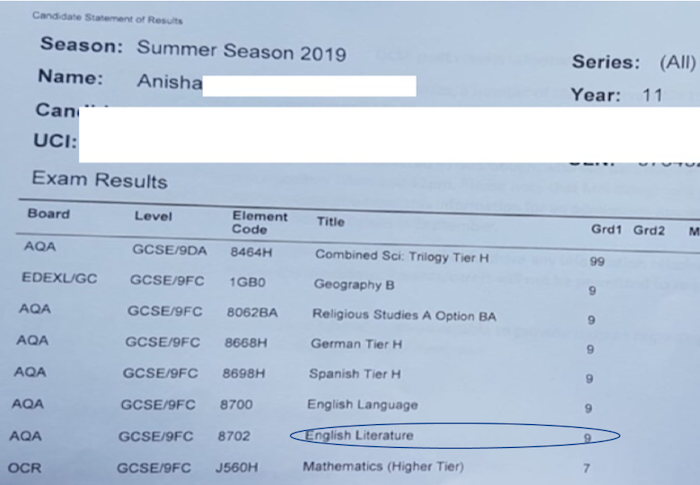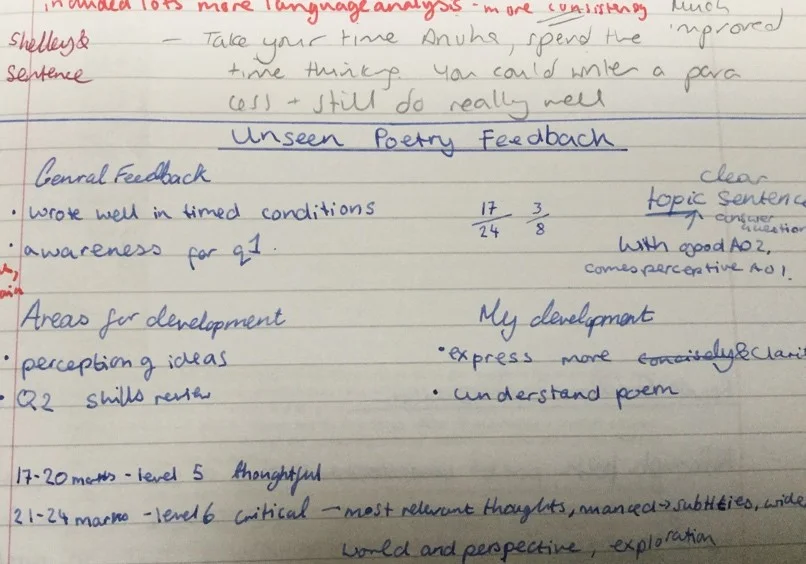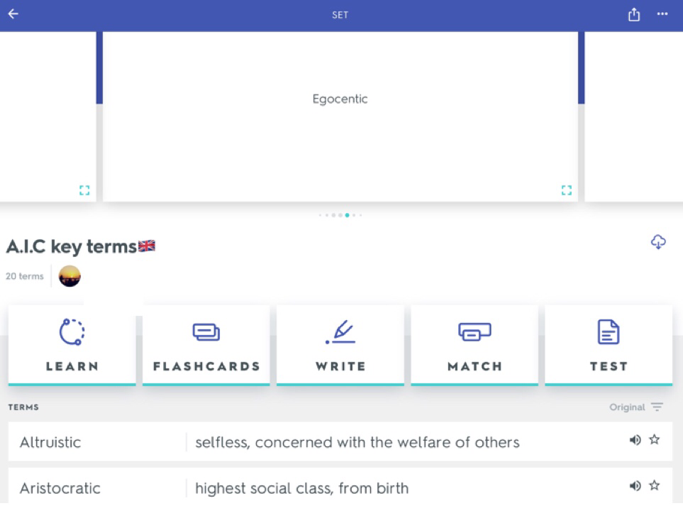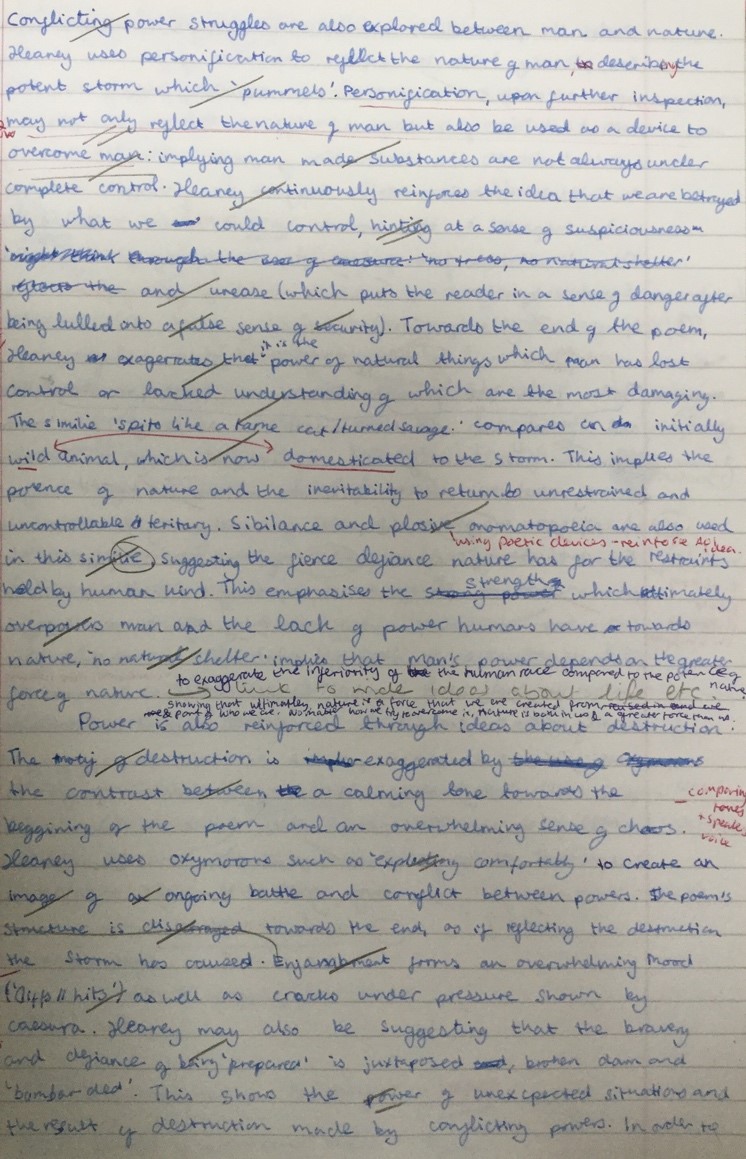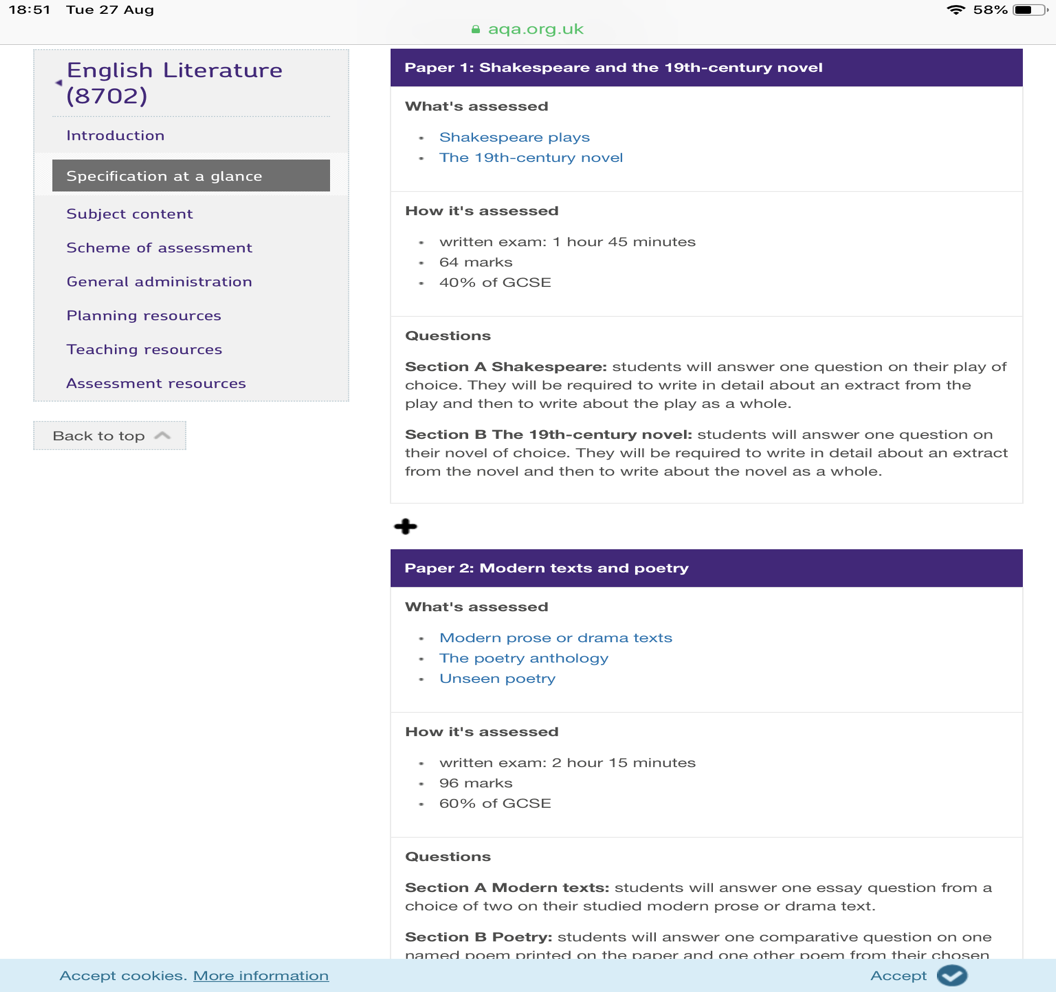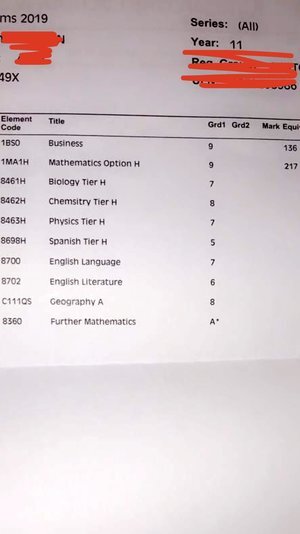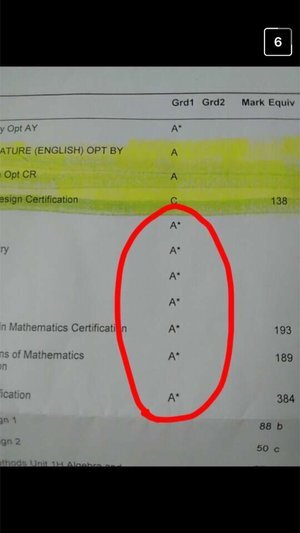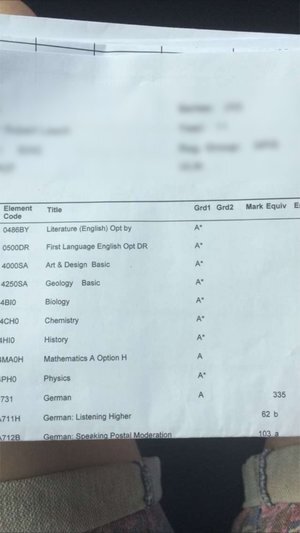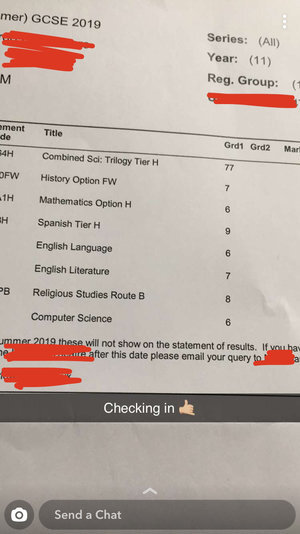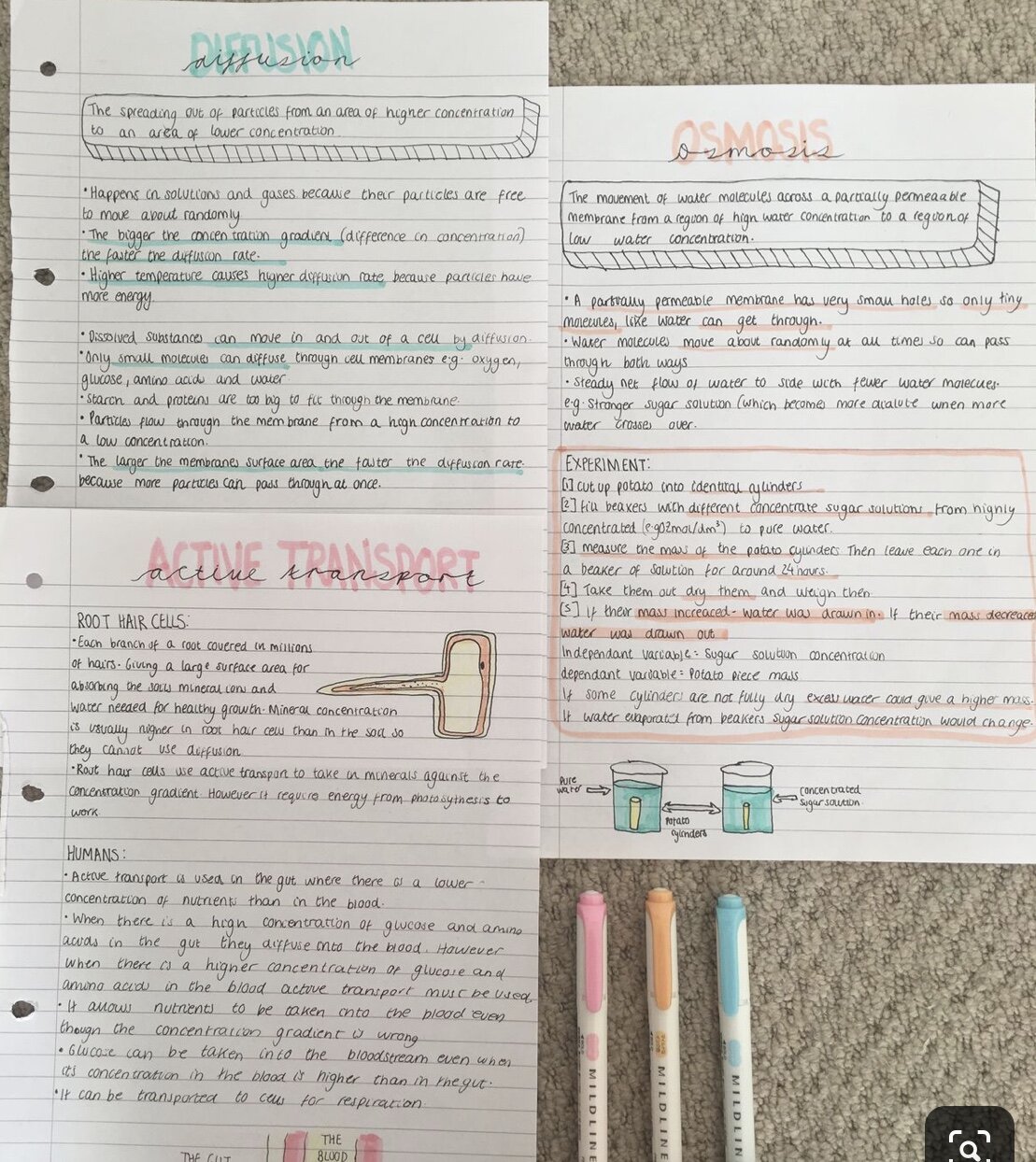About Me
I have to be honest, getting a 9 is no easy feat - but with the right effort, attitude and technique, it is certainly possible.
Trying to maintain my hobby as a writer whilst being a climate activist and finding the time to revise was difficult to balance at first. Attending the occasional #FridaysforFuture gatherings was not an excuse to miss out on work and revision - if anything, I had to work harder to catch up! So, to manage my time, I wrote down each of my subjects and the topics within them. When it came to revision, I would choose two subjects and topics to go through per day. For example, for English Literature, revising my Shakespeare play consisted of making a couple of main character mind maps (always linked to a theme) and doing a practice question/paragraph which included those characters and themes.
GCSE English Literature
I’ve always loved English Lit - studying the subject gives you the greater ability to empathise with others: you see yourself mirrored within books and delve deeper into what makes people, people. The modern prose (I did ‘An Inspector Calls’) is especially relatable today, and even Shakespeare’s writing has themes which are still relevant. But, of course, less of the supernatural ghosts! Once you get past Shakespearean language (Sparknotes is great to translate his plays into a more modern English) you can see the destructiveness of greed, what drives ambition, and the undying power of love. The very things that run the world today!
As I said before… it’s not easy! A 2 hour 15 minute long exam? 3 essays? I’ve always struggled with timings and structure - but these things can be refined with a bit of hard work. Being a visual learner, making diagrams and using colour helped me remeber the key points to mention in each paragraph. For example, using a point, evidence, explain structure and remembering to include context on what the writer is trying to show about society through their choice of language.
By the way, I used The Exam Coach’s Online Exam Preparation Bootcamp to help me through my GCSE year. Now more than ever, students need all the help they can get, and this audio course would be my number one recommendation for you this year. You can also apply a 75% discount if you use the code: REVT1 at the checkout after reading my post (available for a limited time only).
The Classwork
I think the most important way to get good grades in English is consistency. Do not underestimate the importance of classwork because, at the end of the day (or two years), that’s the content you’ll be assessed on. What helped me most were practice questions. After you study the text thoroughly: characters, themes, plot, quotes, different interpretations and perspectives - do a practice question so you get used to applying your knowledge - like you would do in an exam.
It can seem quite daunting at first, which is why I strongly recommend getting started early on. Over time, your technique will get better as you apply the teacher’s feedback. For example, once my ideas were perceptive and I explored different views within my text. I also needed to work on my structure in order to make my essays clearer and more precise. This eliminated all the unnecessary waffle so the examiner can match my response to the mark scheme and easily award me marks. Examiners are looking for the quality of the points you make, not the quantity!
English Literature is also all about ideas: the more you read, the better your ideas will become. You’ll start thinking differently about the plot and linking the themes with characters, or even start to see how the author’s life and what was going on around them influences how they write. This is called perception, and it’s a crucial skill to develop in order to qualify for the top grade bands. When you start re-reading your texts regularly, you’ll not only consolidate the key points, but also think differently about what’s going on and be able to approach the text from a broader perspective (knowing how the text will end and what happens next).
An example of the feedback I received over the course of the year - this was for unseen poetry
The Revision
Revising consistently is good, but you need to find the right methods. Using a wide range of vocabulary can help explain your ideas in a more sophisticated and precise manner. I find that Quizlet is great for this as it’s easy to do on the go, or, you can make it more fun and visualise it through adding diagrams and using fancy fonts. Sparknotes (No Fear Shakespeare) is also extremely helpful to act as a basic outline for your own notes and revision resources. They include main themes, characters, plot and quotations. That said, don’t make it your only revision resource.
An example of a flashcard testing set on Quizlet
Learning quotes is often overestimated when revising for English Literature, people often spend more time learning how to memorise reams and reams of quotes. What’s more effective is learning a few short quotes which are easy to remember. These are called ‘microquotes’ and linking them to a bigger theme through a character is a great way to show skill. Remember that your quotes should always have a dramatic device to analyse in detail: common dramatic devices are contrast (juxtaposition), metaphors and similes.
Some of my notes on ‘Macbeth’. As you can see there’s a mix of mind maps and bullet pointed lists. I used these to better understand the points I could make about characters, themes and scenes in the play.
Some of my mind maps for ‘An Inspector Calls’. I used different colours to help draw my attention to quotes.
A practice essay and the flashcards I made after re reading the essay. This type of repetition helped me remember important points which I could then use in others essays and in the real exam if the right kind of question came up.
A practice essay. Here you can see my short and punchy introduction as well as my first paragraph.
More from the practice essay above.
Remember that the English Lit (AQA) exam is split into two papers and it’s important to keep going through your plays, novels and poetry throughout the year to keep it fresh in your mind. I started alternating my practice questions from February: going over the one text/section of the paper every couple of weeks. I focused on one text at a time and went through it thoroughly, making sure I understood everything in the texts so that I could make links, parallels and contrasts between detailed scenes/chapters as well as the texts as a whole.
This is a screenshot on what’s assessed and how it’s assessed for paper 1 and paper 2 taken from the AQA website.
It’s also essential to revise for the mocks as if they’re the real thing. If anything, because I did this, the real exam was so much more relaxing. After I finished every text I made some revision materials to help me trigger my memory and ideas about the text.
When it came to the exam, I used these materials to go over, because making sure you know and understand the text is essential, how else will you be able to be ‘perceptive’ about it? Essay plans are also really good to do when you’re rushed for time. Use an example question and always, always plan out your answer. What is your first paragraph/point going to be? In each paragraph you should link back to the question, talk about language with quotes to support your point. You should also explain why the writer wanted to write about this - what events were going around at that time? For example, in ‘An Inspector Calls’, remembering the audience knew the Titanic sank after the play was set is dramatic irony.
The Exam
Nonetheless, at the end of paper 1, I thought I had done terribly. After so much revision and preparation, I could only think of what I did wrong. I had a ‘Macbeth’ ‘asses’ question, and although I tried to plan my answer thoroughly, I didn’t have enough time to do a proper counter argument. On paper 2, I was still rushed for time but I made sure I stuck more consistently to timings and planned my answer to every question. Luckily, my poetry question was on the exact same poem that came up on my mock, which is why practice papers are so important (even though it wasn’t the same question). In my mock I over complicated the question and compared it to a loosely connected poem, thinking I would get more marks for a ‘perceptive’ comparison. But luckily I learnt that it is better to make more obvious comparisons and explain them in more detail so the examiner can easily award you some marks.
Summary and Pro Tip
English Literature is a tough exam and there’s a lot of it, so it’s important to consistently refresh your memory on the texts and revisit them with new ideas over and over again. If you’re not great at timings, first get the skills right. For example, picking specific quotations, analysing them in detail and the linking in what events happened in the author’s lifetime to inspire their point of view. Try and pick apart specific details from a quote and then look at the wider perspective, are there any similarities or sharp contrasts to the rest of the texts? Getting a good grade means you should also persistently look at not only how the author did it (language analysis) but why would they write this novel, play or poem? What is the point they are trying to make to their audience or readers? What is the writer trying to say about human nature, society and the world?
Thanks for reading my blog, I hope it’s been helpful - good luck!
Want some more help from The Exam Coach this year?
Online Exam Preparation Bootcamp
Learn how to prepare for your GCSE and A Level exams like the top performing students in the UK 🇬🇧
Improve your grades by one and a half grade boundaries (on average).
This audio programme will make you:
More disciplined
More motivated
Revise faster and better
For a limited time only, we’re offering you a 75% discount on this course!
Enter discount code REVT1 at the checkout (available for a limited time only). Take a look and find out more about the Online Exam Preparation Bootcamp by clicking here.

